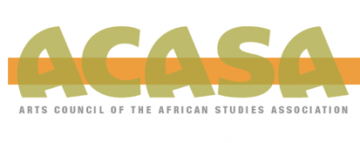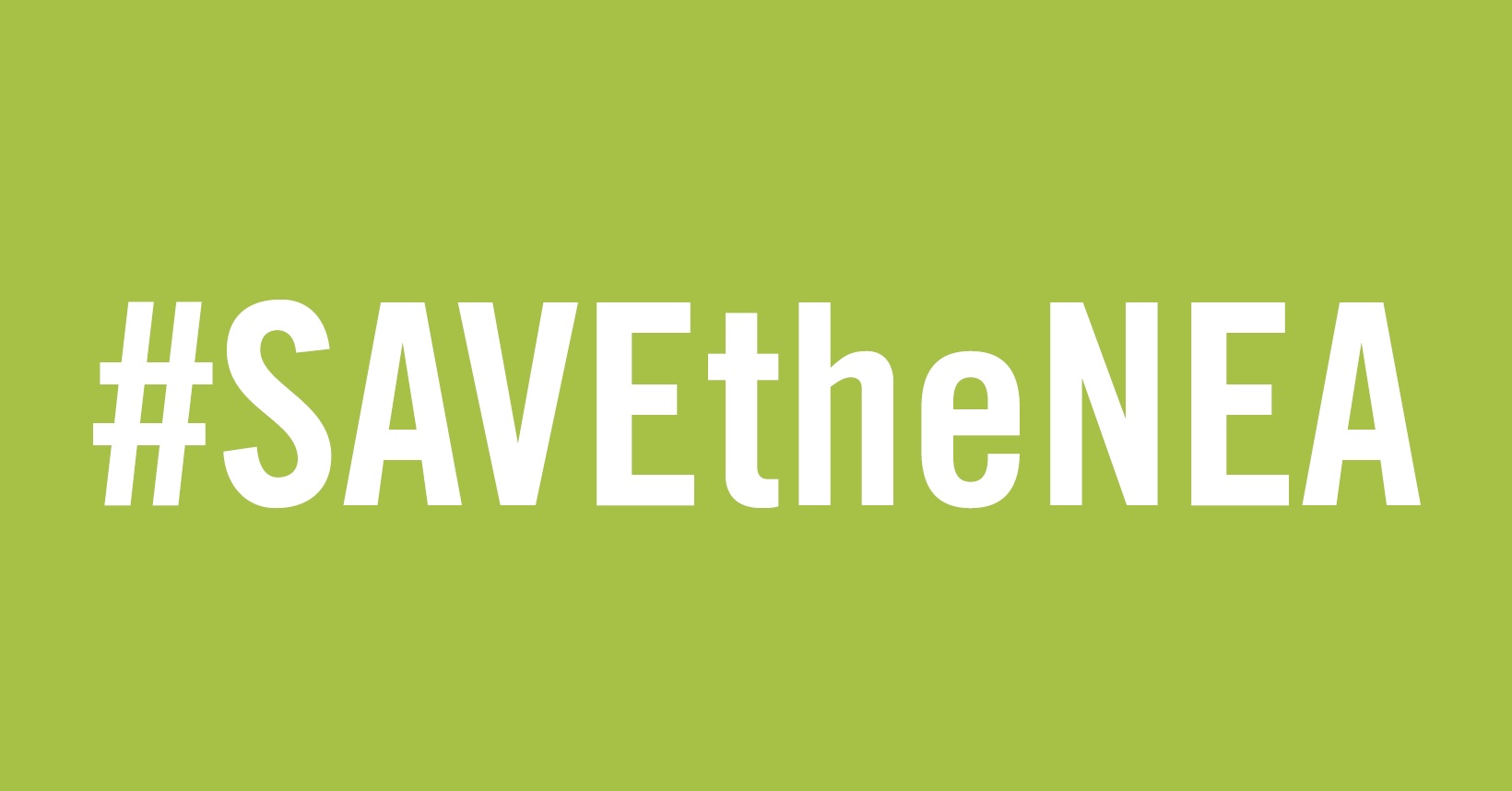CAA News Today
CAA Affiliate ACSAA Condemns the Assault on Democratic Institutions and Intellectual Freedoms in India
posted by CAA — January 17, 2020
The American Council for Southern Asian Art (ACSAA), a CAA Affiliate Society, has condemned the ongoing assault on democratic institutions and intellectual freedoms in India. Read their statement below.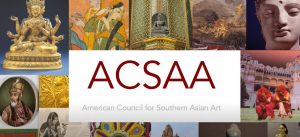
The American Council of Southern Asian Art (ACSAA), a non-profit organization and a community of academics and humanists, condemns the ongoing assault on democratic institutions and intellectual freedoms in India.
Both the Citizenship Amendment Act (CAA), signed on 11 December 2019, and the National Register of Citizens (NRC) Act, to be implemented in 2021, are openly discriminatory laws. We denounce any attempt at exclusion based on religion, caste, gender, race, or sexual identity, and find both laws to be antithetical to the Indian constitution and its democracy. In particular, as researchers and teachers of India’s art and architecture across millennia, we are committed to preserving the rich contributions of Muslims to its visual culture and intellectual life. We see this commitment as directly threatened by the violent, often state-sanctioned, erasure of such contributions, in instances such as the demolition of the Babri Masjid, the occupation of Kashmir, the renaming of cities, and the rewriting of academic curricula along Hindutva lines.
We stand in full support of the students and teachers at Aligarh Muslim University and the Jamia Millia Islamia, following the events of 15 December 2019; at Jawaharlal Nehru University, following events there on 5 January 2020; and everyone currently participating in peaceful protests and demonstrations across the country. We see the brutal attack at JNU—organized and executed by members of the Akhil Bharatiya Vidyarthi Parishad (ABVP), the student faction of the Hindutva organization, the Rashtriya Swayamsevak Sangh (RSS) and, with the ruling Bharatiya Janata Party (BJP), a member of the Sangh Parivar—as one more instance of a widespread denial of the rights of Indian citizens to critique their government peacefully and openly.
The accusations of “anti-nationalism” directed at marginalized communities at these confrontations – particularly Muslims, Dalits, and women – are reminders of the extent to which extremists will go to erode the secular principles on which the country was founded.
To date, there have been no arrests or investigations into the identity of the attackers at JNU, despite indisputable evidence. We deplore the negligence of the Delhi Police, who looked on as the attacks happened, and call for both an immediate investigation and the resignation of JNU’s Vice Chancellor, M. Jagadesh Kumar. Following as it does the instances of police violence at Aligarh Muslim University and Jamia Millia Islamia, as well as long-term interventions including cuts to funding and fee hikes, the JNU attack urgently increases our concern, as part of the global academic community, for public higher education and critical thought in India.
The American Council for Southern Asian Art (ACSAA) is dedicated to advancing the study and awareness of the art of South and Southeast Asia and the Himalayan regions, spanning all periods and forms of artistic production.
Related reading: In Photos: The World’s Largest Democracy Is in Upheaval (Quartz India, December 15, 2019)
Police Fire Tear Gas as Delhi Protesters Decry Citizenship Law (Al Jazeera, December 15, 2019)
I Saw Police Stand by as Masked Men Attacked Students at a Top Delhi University. It Was Yet Another Assault on India’s Intellectuals (Time, January 8, 2020)
Behind Campus Attack in India, Some See a Far-Right Agenda (New York Times, January 10, 2020)
CAA Endorses ACASA’s Statement Concerning Destruction of Cultural Patrimony in Bafut
posted by CAA — December 16, 2019

On September 24, soldiers from the Rapid Intervention Battalion (BIR) attacked and looted the Royal Palace, in Bafut, North-West region. © Creative Commons/ShareAlike 3.0, via Human Rights Watch
CAA endorses its affiliate society, the Arts Council of the African Studies Association (ACASA), in condemning recent reports of theft, property damage, as well as violence at the Palace of Bafut in Cameroon.
The site is an important part of the history and culture of the Bafut population in the northwest region of Cameroon, and continues to function as a center for religious rites and ceremonies. The violence and destruction to the Bafut Palace threatens the safety and identity of the Bafut people and the maintenance of their distinctive cultural traditions. As such it deserves protection from the Republic of Cameroon and pressure from organizations and governments to restore damaged structures and return stolen artifacts.
Read ACASA’s statement below.
Statement Concerning Destruction of Cultural Patrimony in Bafut
20 November 2019
The Arts Council of the African Studies Association (ACASA)—an independent professional association which exists to facilitate communication among scholars, teachers, students, artists, museum specialists, collectors, and all others interested in the arts of Africa and the African Diaspora—condemns the violent aggression perpetrated by the Republic of Cameroon against the Palace of Bafut, a site included on UNESCO’s Tentative List of World Heritage Sites since 2006. Human Rights Watch reports that “On September 24 [2019], soldiers from the Rapid Intervention Battalion (BIR) attacked and looted the Royal Palace in Bafut, North-West region.” (https://www.hrw.org/news/2019/10/11/world-heritage-site-attacked-cameroon#) Fon Abumbi II of Bafut protested the aggression in a letter dated September 24, 2019 and addressed to the Governor of North West Region. In addition to causing damage to buildings within the palace and perpetrating violence against those who had been neither charged nor tried in a court of law, these troops representing the authority of the State shamelessly stole historical objects from the palace museum.
According to the World Monuments Fund, the palace “embodies Bafut cultural identity and remains a center for religious rites and traditional ceremonies. Over 50 houses are clustered around the site’s spiritual core, Achum Shrine, and are used by the Fon (king), his wives, and the royal court.” (https://www.wmf.org/project/bafut-palace) The palaces and museums of the North West Region of Cameroon serve as invaluable repositories of the long-standing traditions and material cultures of these vibrant kingdoms. These palaces and associated sites—where ritual practices have long been performed—foster and house the heritages, both tangible and intangible of these communities. The violent destruction and looting of such a site may be understood as an attempt to erase the cultural identity of the Bafut population. As a site listed on the Tentative List of World Heritage Sites, Bafut Palace is recognized as holding even greater than just local significance, constituting a primary locus of cultural heritage for the entirety of Cameroon, and indeed the world. The Cameroonian State must treat these places as the internationally significant cultural heritage sites that they are.
ACASA calls on the Republic of Cameroon to protect sites of cultural heritage as required by being party to the 1954 Hague Convention for the Protection of Cultural Property. According to Article 4(3) of the aforementioned convention, it is the obligation of the State “to prohibit, prevent and, if necessary, put a story to any form of theft, pillage or misappropriation of, and any acts of vandalism directed against, cultural property….” In light of this international obligation, the Cameroonian State must bring to justice and punish appropriately those responsible for this heinous act. Furthermore, every effort must be taken to return looted items of cultural heritage to the palace museum of Bafut.
CC:
Paul Biya, President of the Republic of Cameroon
Henri Etoundi Essomba, Ambassador of the Republic of Cameroon to the US
Peter Henry Barlein, US Ambassador to the Republic of Cameroon
Narcisse Mouelle Kombi, Minister of Arts and Culture for the Republic of Cameroon
UNESCO
World Monuments Fund
Action Needed: Restoring Tax Equity for Artists
posted by CAA — May 02, 2019
 We urge our members to help support the Artist-Museum Partnership Act of 2019 (HR 1793), an important initiative to restore tax equity for artists. If passed the act would allow artists to deduct the fair market value of their work when donating to an institution or charity, rather than only the cost of supplies. While collectors donating artwork can currently deduct fair market value, artists are not permitted to.
We urge our members to help support the Artist-Museum Partnership Act of 2019 (HR 1793), an important initiative to restore tax equity for artists. If passed the act would allow artists to deduct the fair market value of their work when donating to an institution or charity, rather than only the cost of supplies. While collectors donating artwork can currently deduct fair market value, artists are not permitted to.
First introduced in 2005, the measure has passed the Senate more than once in the past, but it still hasn’t become law.
Rep. John Lewis is now circulating a “Dear Colleague” letter in support of the act, which we urge all representatives to sign on to.
Click here to find your representatives.
For more on CAA’s advocacy efforts, click here.
For Third Year in a Row, Trump Administration Threatens to Cut NEA and NEH Funding
posted by CAA — March 19, 2019
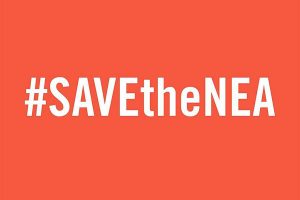
For the third consecutive year, the Trump administration is aiming to eliminate the National Endowment for the Arts and the National Endowment for the Humanities.
Trump unveiled a $4.75 trillion budget—the largest in federal history—on March 11, but details about his plans for the NEA and NEH were announced yesterday in the administration’s full proposal. According to the documents, the NEA’s budget is marked at $29 million and the NEH’s is at $38 million—which the proposal describes as “sufficient funding for orderly termination of all operations over two years.”
Since 2017, Trump has been vocal in his desire to eliminate the two agencies entirely. In 2019, each of the agencies was allocated a budget of $155 million, despite similar calls for elimination in 2018 and 2019. The US federal budget for 2020 will ultimately be decided by Congress.
We’ll be fighting back again this year and hope that you do, too. The most effective way to make your voice heard is through your local representatives. Call. Email. Write letters.
Urge your representatives to sign on to this NEA funding letter and this NEH funding letter, which ask for budgets of $167.5 million for each agency.
Signing deadline: March 27, 2019
Click here to access the CAA Arts and Humanities Advocacy Toolkit.
CAA at 2019 Advocacy Days in Washington, DC
posted by CAA — March 18, 2019
It’s been a busy month for direct advocacy at CAA! This past month, members of CAA staff attended three national advocacy convenings in Washington, DC: Museums Advocacy Day, Arts Advocacy Day, and Humanities Advocacy Day.
We visited congressional offices to advocate for support for the arts, humanities, and higher education, and continued funding for the NEA, NEH, and IMLS. Our asks also included the reauthorization of the Higher Education Act and support for the Universal Charitable Giving Act and the CREATE Act.
See our on-the-ground updates via Twitter and Instagram.
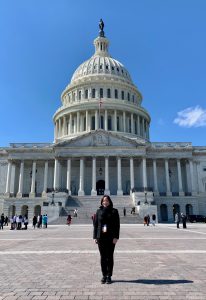
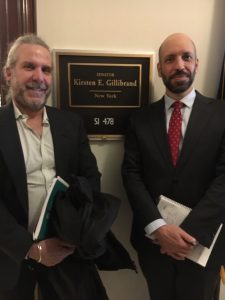
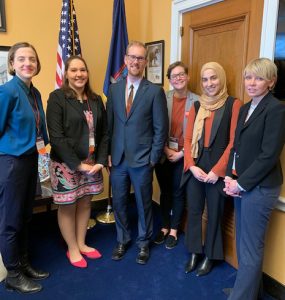
CAA Sponsorship and Partnership Manager Alison Chang; CAA Executive Director Hunter O’Hanian and Legislative Assistant Eric Deeble; CAA Media and Content Manager Joelle Te Paske (far left) and fellow advocates in Rep. Paul Tonko’s office
We visited 15 congressional offices representing four different states, with positive responses from both Democrats and Republicans. We met with staff or dropped off materials with:
Georgia
Rep. Sanford Bishop (D-GA 2nd District)
New York
Rep. Antonio Delgado (D-NY 19th District)
Sen. Kirsten Gillibrand (D-NY)
Rep. Eliot Engel (D-NY 16th District)
Rep. Nita Lowey (D-NY 17th District)
Rep. Sean Maloney (D-NY 18th District)
Rep. Joe Morelle (D-NY 25th District)
Rep. Jerrold Nadler (D-NY 10th District)
Rep. Tom Reed (R-NY 23rd District)
Rep. Kathleen Rice (D-NY 4th District)
Sen. Chuck Schumer (D-NY)
Rep. Paul Tonko (D-NY 20th District)
Rep. Nydia Velazquez (D-NY 7th District)
Oregon
Peter DeFazio (D-OR 4th District)
Texas
Bill Flores (R-TX 17th District)
Learn more about the Advocacy Days below.
View this post on Instagram
MUSEUMS ADVOCACY DAY
February 25-26, 2019
Hosted by American Alliance of Museums
Museum professionals from across the United States gather in Washington, DC, for Museums Advocacy Day. Participants attend sessions outlining key legislative issues affecting the field and meet with their representatives and senators to educate them about the mission of museums and their role in the economy, in adult and child education, and in national culture. Learn more.
ARTS ADVOCACY DAY
March 4-5, 2019
Hosted by Americans for the Arts
Arts advocates from across the country convene in Washington, DC for Americans for the Arts’s annual Arts Advocacy Day each year. Arts Advocacy Day brings together a broad cross section of America’s cultural and civic organizations, along with more than 700 grassroots advocates from across the country, to underscore the importance of developing strong public policies and appropriating increased public funding for the arts. Learn more.
HUMANITIES ADVOCACY DAY
March 11-12, 2018
Hosted by National Humanities Alliance
Humanities Advocacy Day provides the opportunity to connect with a growing number of humanities advocates from around the country. Together, advocates will explore approaches to year-round advocacy on college campuses and in local communities while also preparing for Capitol Hill visits. On March 12, they will visit House and Senate offices to make a persuasive case for federal funding for the humanities. Learn more.
For more on CAA’s advocacy efforts, click here.
We encourage you to be vocal about your support for the arts and humanities. Click here to access the CAA Arts and Humanities Advocacy Toolkit.
Tania Bruguera on Decree 349, the Criminalization of the Arts in Cuba, and How You Can Help
posted by CAA — October 18, 2018
In July 2018, the Cuban government issued Decree 349, legislation targeting the artistic community on the island nation. Under the decree, all artists—including collectives, musicians, and performers—will be prohibited from operating in public or private spaces without prior approval by the Ministry of Culture. It is slated to go into full effect on December 7, 2018.
CAA released a statement of opposition to the decree last month. Recently, CAA media and content manager Joelle Te Paske corresponded with artist, activist, and 2016 CAA keynote speaker Tania Bruguera to learn more.
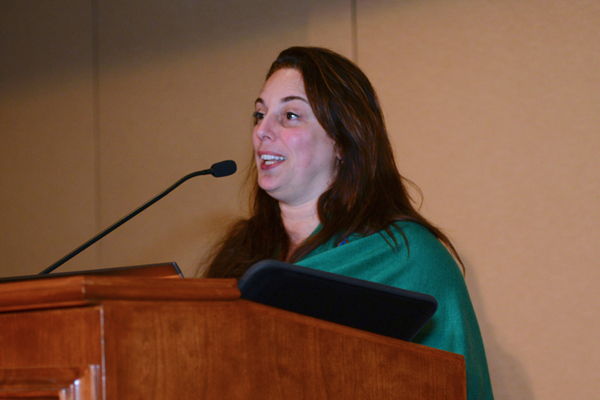
Tania Bruguera delivers the keynote address at the 2016 CAA Annual Conference in Washington, DC.
Joelle Te Paske: I’ve read that Decree 349 was signed in April and then announced without any consultation on July 10 in the government’s newspaper. How did you first find out about it?
Tania Bruguera: Decree 349 was signed by the new President of Cuba [Miguel Díaz-Canel] without consulting artists—something even the national newspaper had to admit in a recent article, which was ironically published to defend the decree. Also, it was not publicly known until almost six months after it was official, but that didn’t stop them from [moving to] apply it. It was used already with younger artists who participated in the alternative biennial when recording their artist ID registration, the only legal document that protects and allows someone to be an artist in Cuba. They also enforced it with us at the Instituto de artivismo Hannah Arendt (Hannah Arendt Institute of Activism), charging fines of $2,000 for not having permission from the Ministry of Culture to do what they call “artistic services” inside of my house. The last free space we had in Cuba was our homes—now with this law, they are also regulated spaces.
JTP: The decree is wide-ranging and applies to all cultural activity, not just visual art, is that right?
TB: Yes, they are cutting all the heads. There is a strong independent cinema movement, an alternative music scene, DIY theater, and new independent art galleries—they are all going to be gone. The government is presenting this decree as an innocent regulation, but it is in fact a muzzle to artists. We know that those permissions are not based on anything but ideological considerations, and it will be used as a blackmailing instrument. Also, it gives the government the right to decide who is and who is not an artist, what is and what is not art.
JTP: Luis Manuel Otero Alcántara, Amaury Pacheco, Iris Ruiz, Soandry Del Rio, and José Ernesto Alonso—artists who organized a protest performance on July 21—were arrested by Cuban police officials and charged with public disorder. Are tactics like this being used to intimidate artists who are speaking out?
TB: When you are protesting, when you get detained, you have already overcome your fears. In my experience, those repressive acts from the government consolidate your ideas. Confronting injustice unifies the group and makes people even more committed to fight. These detentions are designed to discourage by suggesting that your actions won’t change anything. They try to back you away from doing bigger collective demonstrations. Their absurd repression and disproportionate reaction to any small action shows how they are proving themselves wrong. But the real goal of all these engineered scare tactics is to intimidate those who are not protesting.
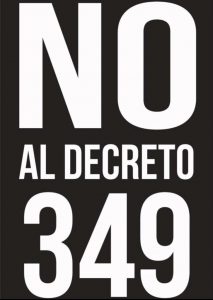
JTP: The decree specifically targets independent artists working without larger financial support structures. How do you think this will affect cultural life in Cuba?
TB: It is not a matter of finances at least for now—[the government] may use the same tactic of fake tax evasion charges that the Chinese government has used later on. Decree 349 also affects independent cinema which, comparatively, works with a larger budget. It is a matter of stopping artists from imagining, producing, and showing art independently. It is about the Ministry of Culture looking obsolete because it cannot control its artists, and so the law is intervening.
JTP: Amnesty International has written: “The lack of precision in the wording of the decree opens the door for its arbitrary application to further crackdown on dissent and critical voices in a country where artists have been harassed and detained for decades.” Would you agree with their assessment?
TB: Absolutely. This is the real goal of Decree 349—it even says that the artworks must follow ethical and revolutionary principles, but those are not described anywhere in the text nor linked to any other document to be consulted. In case you want to do your art “within the law,” there are no guidelines. “You should know better” and “Be submissive and compliant to the government’s needs of the moment” seem to be the subliminal messages.
What the artists who now have the favor of the government do not see is that the permissive line always moves. Today they are within the law, tomorrow they may be outside of the law. Everyone is a potential dissident in the eyes of the Cuban government—they do not trust anyone, and less so artists.
JTP: CAA recently put out a statement of support for the artists and activists opposed to Decree 349. What advice would you give CAA members who want to help?
TB: I want to thank CAA for its support of our cause. It makes an immense difference because the Cuban government makes a lot of its internal decisions based on how they make them look internationally. Our only protection comes from organizations and people in the world who recognize our experiences beyond all the official propaganda. It is important that people, especially those who identify as leftists and progressives, realize that Cuba today is not the one from the 1960s, where it was full of humanistic promise. Now we have a Cuba where the law is not to establish justice, but to measure the loyalty to the government.
The “Cuban legal turn,” as I call it, is an effort of the government to look “respectable” while abusing its power. They have found the perfect tool, one that is universally understood: the outlaws. No more conversations about politics or sympathies for you—now you are a common criminal. The Cuban government doesn’t recognize political prisoners. You are accused of some common crime instead of the real one, which is political. This makes it murky for people to understand what is happening and to be able to show solidarity. The conversation will shift from political rights to if anyone has ever seen the person in question taking drugs, stealing, molesting someone, or making a public scandal. Doubt then takes over your judgement [as the onlooker], and you may think twice before supporting a freedom fighter because you feel uncomfortable about the issues they are falsely accused of. That’s all the Cuban government needs from you, the ones outside of Cuba, the ones who can put pressure on them. That is why no dissident, and now no artist, will be ever accused of political motivation but rather for criminal offenses. What people need to know is that Decree 349 is not a law, but a way to stop the growing unified artistic movement for freedom of expression in Cuba. They need to understand that the law in Cuba is selectively applied to those uncomfortable to the government.
In these times, when totalitarian efforts are shamelessly growing around the world—specifically in the United States with Trump—we cannot get tired in front of injustice. We can’t forgive any injustice, no matter how small, because the next one is built on top off it.
JTP: Thank you. And to let our readers know, what are the projects you yourself are working on currently?
TB: I’ve been working on the Turbine Hall commission at the Tate Modern, which will be on view until February 24th, and on some new artworks to be shown in India, Italy, the UK, Sweden, and Mexico. I also just launched a new series of works focused on Trump and will soon do some new performances against Decree 349.
JTP: Anything else you would like people to know?
TB: Cuban artists are leading the fight for freedom of expression and we are not going to stop.You can support us by joining our petition to abolish Decree 349. Click here to sign.
Thank you!
CAA Opposes the Cuban Government’s Decree 349 and Its Impact on Artists
posted by CAA — September 05, 2018
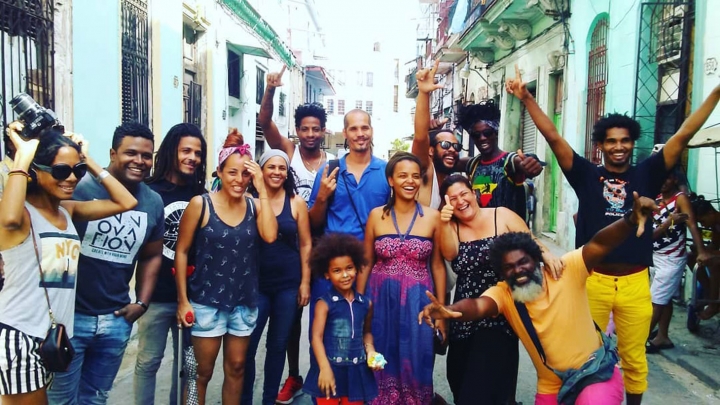
Cuban artists and activists organizing in opposition to the decree. Image: Courtesy Yanelyz Nuñez Leyva via Hyperallergic
In July 2018, the Cuban government issued Decree 349, aimed at the artists’ community on the island nation. The decree is slated to go into effect on December 1, 2018.
The law will criminalize independent artists who do not have authorization from the Ministry of Culture, and it will empower a new cadre of state agents to shut down events, confiscate artists’ equipment and property, impose heavy fines, and make arrests. Cuban artists were not consulted in the development of the decree and will have no recourse to independent arbiters in the event of a dispute. In particular this legislation will affect artists who are black and poor, as well as independent artists.
Amnesty International recently issued a statement about Decree 349:
“Amnesty International is concerned that the recent arbitrary detentions of Cuban artists protesting Decree 349, as reported by Cuban independent media, are an ominous sign of things to come. We stand in solidarity with all independent artists in Cuba that are challenging the legitimacy of the decree and standing up for a space in which they can work freely without fear of reprisals.”
CAA supports the work of Cuban artists and activists inside and outside of Cuba in their campaign to urge the Cuban government to reconsider the law and agree to a public debate with the artistic community. We support the artists’ Open Letter urging the Cuban government to refrain from imposing these harsh restrictions on its artists.
Related: As Criminalization of the Arts Intensifies in Cuba, Activists Organize (Hyperallergic)
Tania Bruguera and Other Artists Are Protesting a New Cuban Law That Requires Government Approval of Creative Production (artnet News)
CAA Statement on Supreme Court Decision to Uphold Travel Ban
posted by CAA — June 26, 2018
In light of today’s Supreme Court ruling upholding President Trump’s travel ban, we are reposting our Statement from February 2017 here in its entirety. Our values have not changed.
As we stated when we joined two amicus briefs in May 2017, speaking out against this decision is inherent to our advocacy efforts and our international reach at CAA. The travel ban impacts the international attendees of our Annual Conference, it impinges on the flow of information and discussion between colleagues, and it harms the practice of research more broadly. See the statement below.
CAA Statement on Immigration Ban, February 2017
CAA, the largest professional group for artists and art historians in the United States, strongly condemns and expresses its grave concern about the recent presidential executive order aimed at limiting the movement of members of CAA and the broader community of arts professionals who fall under the selective set of criteria for national status or ethnic affiliation.
CAA has counted international scholars and artists among its members for many years. Committed to the common purpose of understanding the visual arts in all its forms, professionals throughout the world have enriched CAA’s community by adding diverse perspectives to the study, making, and teaching of art. With funding in recent years from the Getty Foundation to support travel and programs for scholars and curators from Africa, Latin America, Russia and Eastern Europe, and Asia, the association now includes members from seventy countries. More than ten percent of our individual members are international. CAA has counted international scholars and artists among its members since the earliest years of its existence. The roots of CAA’s present-day international program stemmed from a desire to assist European refugees in the 1930s to support personal safety as well as academic and artistic freedom. During that decade, CAA had a “foreign membership” category; as art historians fled Hitler’s Europe, CAA ran a lecture bureau for refugee scholars that created speaking engagements for them at institutions throughout the United States.
The recently announced ban on travel to the United States for residents of seven predominantly Muslim countries not only goes against the inclusive, secular underpinnings of American democracy, it stifles the open access to scholarship and art upon which our work is founded. The executive order goes against our professional and scholarly commitment to diversity, the global exchange of ideas, and the respect for difference. The contribution of immigrants, foreign nationals, and people of all cultural backgrounds greatly strengthens our intellectual and creative world. Further, we believe the executive order law challenges the values at the heart of the US Constitution’s protections on speech and association as well as our national commitment to democratic process for all.
Turning our backs on refugees and closing our borders selectively stifles creative and intellectual work in addition to its very real impact on peoples’ daily lives. We call on our public officials to thwart this attempt to seemingly preserve our own safety at the expense of those who are vulnerable and who also contribute so much.
Without question, CAA welcomes all members and non-members to our upcoming Annual Conference to discuss and debate what constitutes a thriving artistic and intellectual society. Such openness is essential to our mission. We are committed through dialogue and action to help any CAA members who are affected by this policy. To this end, the association and the Board of Directors will continue to monitor and respond to policies related to this order as well as pressure for its immediate repeal.
See the original statement posted February 2017.
See CAA Amicus Brief on Trump’s Travel Ban, May 2017.
For more on CAA’s advocacy efforts, click here.
CAA at 2018 Arts and Humanities Advocacy Days in Washington, DC
posted by CAA — March 16, 2018
CAA staff in Washington, DC (left to right): Joelle Te Paske, media and content manager, Alison Chang, sponsorship and partnership manager, Aakash Suchak, grants and special programs manager, Hunter O’Hanian, executive director, and Nick Obourn, director of communications, marketing, and membership.
Earlier this week CAA staff traveled to Washington, DC for Americans for the Arts’s Arts Advocacy Day and National Alliance for the Humanities’s Humanities Advocacy Day.
After a day of breakout sessions and briefings on Monday, staff visited congressional offices on Tuesday to advocate for continued funding for NEA, NEH, IMLS, CPB, and support for the arts, humanities, and higher education. See our on-the-ground updates.
We visited 18 congressional offices representing three different states, with positive responses from both Democrats and Republicans. We meet with staff or dropped off materials with:
New York
Sen. Chuck Schumer (D-NY)
Rep. Grace Meng (D-NY 6th District)
Dropped off materials with Rep. Nydia Velázquez (D-NY 7th District)
Dropped off materials with Rep. Hakeem Jeffries (D-NY 8th District)
Rep. Yvette Clarke (D-NY 9th District)
Rep. Jerrold Nadler (D-NY 10th District)
Dropped off materials with Rep. Eliot Engel (D-NY 16th District)
Rep. Nita Lowey (D-NY 17th District)
Rep. Sean Maloney (D-NY 18th District)
Wisconsin
Sen. Ron Johnson (R-WI)
Rep. Mark Pocan (D-WI 2nd District)
Rep. Sean Duffy (R-WI 7th District)
Rep. Mike Gallagher (R-WI 8th District)
Connecticut
Sen. Richard Blumenthal (D-CT)
Rep. John Larson (D-CT 1st District)
Rep. Joe Courtney (D-CT 2nd District)
Rep. Jim Himes (D-CT 4th District)
Rep. Elizabeth Esty (D-CT 5th District)
Learn more about Advocacy Days below.
ARTS ADVOCACY DAY
March 12 – March 13, 2018
Hosted by Americans for the Arts
Arts advocates from across the country convene in Washington, DC for Americans for the Arts’s annual Arts Advocacy Day each year. Arts Advocacy Day brings together a broad cross section of America’s cultural and civic organizations, along with more than 700 grassroots advocates from across the country, to underscore the importance of developing strong public policies and appropriating increased public funding for the arts. Learn more.
HUMANITIES ADVOCACY DAY
March 11 – March 13, 2018
Hosted by National Alliance for the Humanities
Humanities Advocacy Day provides the opportunity to connect with a growing number of humanities advocates from around the country. Together, advocates will explore approaches to year-round advocacy on college campuses and in local communities while also preparing for Capitol Hill visits. On March 13, they will visit House and Senate offices to make a persuasive case for federal funding for the humanities. Learn more.
WHY DID CAA ATTEND?
For two years in a row, we’ve offered our complete and total opposition to efforts to eliminate funding for the National Endowment for the Arts (NEA), the National Endowment for the Humanities (NEH), and other domestic programs that fund education, arts, and humanities initiatives, as outlined in the 2018 and 2019 White House budget proposals.
Over the last year, we’ve also solicited feedback from our members on a variety of issues that impact the arts, humanities, and higher education, including:
- Gun control and the proposal to arm teachers
- Tax reform and its effect on higher education
- Embracing and supporting diverse voices in the arts
- Hiring standards for part-time faculty
- Removing or preserving Confederate monuments
- The Muslim Travel Ban
For more on our advocacy efforts, click here.
We encourage you to be vocal about your support for the arts and humanities. Click here to access the CAA Arts and Humanities Advocacy Toolkit.
CAA Statement on the 2019 White House Budget Proposal
posted by CAA — February 12, 2018
Earlier this afternoon, the White House released its 2019 Budget Proposal. The $4.4 trillion budget outlines deep cuts in domestic programs that fund education, arts, and humanities initiatives, while increasing military spending.
“By zeroing out the budgets for the NEH, NEA and similar agencies that support the arts, humanities and education, the President has shown again that he cares more about tax cuts for the wealthy than supporting an American cultural heritage, funded though these agencies,” said Hunter O’Hanian, CAA’s executive director. “Thankfully, a bipartisan group of Congressional members, those with the real financial authority, have Americans interests at heart and they will reject the President’s draconian proposals.”
The entire budget proposal adds $984 billion to the federal deficit in the next year and in total adds $7 trillion to the deficit over the next 10 years.
Partial list of programs slated for elimination:
- NEA
- NEH
- IMLS
- CPB
- Corporation for Travel Promotion (Brand USA)
- Delta Regional Authority
- Denali Commission
- Northern Border Regional Commission
- Woodrow Wilson Center
- S. Interagency Council on Homelessness
- S. Trade and Development Agency
- Chemical Safety and Hazard Inspection Board
- Under SNAP: “Proposals are also included to eliminate funding for State performance bonuses and for SNAP nutrition education grants…”
- Economic Development Administration
- Contingency Fund
We call on our members and those who believe in the importance of the arts, humanities, and education to act now. The most effective way to make your voice heard is through your local representatives. Call. Email. Write letters.
Congress has this budget in their hands and now is the time to let them know you support the programs it seeks to eliminate.
Click here to access the CAA Arts and Humanities Advocacy Toolkit.
We look forward to discussing budget advocacy at our Annual Conference in Los Angeles, February 21-24.



